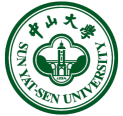Liver Research
Liver Research
Liver Research is an international, open-access, peer-reviewed English journal that publishes reviews, editorials, and original articles describing novel developments covering all aspects of liver and...
Liver Research is an international, open-access, peer-reviewed English journal that publishes reviews, editorials, and original articles describing novel developments covering all aspects of liver and biliary science on a quarterly basis.
Liver Research delivers original research on the biology and diseases of the liver and biliary tree in both human and experimental models.
Liver Research primarily focuses on basic and clinical hepatobiliary research as well as translational medicine focusing on liver disease.
Each quarter, the highest-quality articles on aspects such as viral hepatitis, liver cirrhosis, liver cancer, cholestatic and biliary diseases, and metabolic liver diseases are published.

Society affiliation
Sun Yat-sen UniversitySun Yat-sen University, founded by Dr. Sun Yat-sen and with an educational tradition spanning over 100 years, is a preeminent research, academic and cultural center and the premier location for talent development in South China. Under the direct supervision of the Ministry of Education of the People's Republic of China, and st...
Sun Yat-sen University
Sun Yat-sen University, founded by Dr. Sun Yat-sen and with an educational tradition spanning over 100 years, is a preeminent research, academic and cultural center and the premier location for talent development in South China. Under the direct supervision of the Ministry of Education of the People's Republic of China, and strongly supported by both the Ministry and Guangdong Province, Sun Yat-sen University has developed into a modern comprehensive university that enjoys a reputation as a top-tier university nationally and a renowned university internationally.
The Third Affiliated Hospital of Sun Yat-sen University
Under the direct supervision of the National Health and Family Planning Commission, the Third Affiliated Hospital of Sun Yat-sen University is a modern general academic hospital incorporating medical care, education, research, and community service. It has consistently been ranked highly in the national league table in many aspects such as development scale, research ability, personnel training, and technical and equipment capacity. Currently, the 2200-bed hospital has four campuses: Tianhe, Lingnan, Yuedong and Zhaoqing (however, the number of hospital beds does not include the Yuedong and Zhaoqing campuses).
The hospital contains a wide range of medical disciplines with clear features. It has five national key disciplines, namely internal medicine (nerve), surgery (general surgery), neurology, internal medicine (endocrinology), and otorhinolaryngology. The seven Clinical Key Specialty Development Projects of the Ministry of Health are also represented in the hospital; namely endocrinology, Traditional Medicine for Liver Disease, general surgery, urology surgery, infectious diseases, rheumatology and immunology, and Clinical Care. Hepatology is the leading hospital discipline and is the only domestic discipline developed by the integration of Surgical Hepatology & Hepatology Medicine with Chinese & Western Hepatology Medicine. It includes medicine, surgery, transplantation, intensive care, imaging, invasive therapy, laboratory, and biotherapy in hepatology, and is a strong multidisciplinary group that combines clinical research and treatments.
Furthermore, the hospital is very competitive in the aspect of research. It has nine departments that are qualified to perform national drug clinical trials, one national engineering research center of the Ministry of Education, three provincial key laboratories, four provincial clinical research centers, and two clinical and translational medicine research centers of the Guangzhou municipality. The hospital has cultivated an academic staff of high quality, which is especially highlighted by the number of middle-aged and young academic leaders, and academics with distinguished achievements. Aside from their academic attainments, academic staff members are also very innovative and competitive.
It is worth noting that the hospital initiated the "1+3+4" key construction project, which will establish one national key laboratory (liver disease), three platforms (clinical and translational medicine in stem cell and regenerative medicine, clinical and translational medicine in immunology, and precision medicine based on molecular diagnosis technology), and four regional featured medical centers (for liver disease, autoimmune diseases, psychology and children's developmental behavior, and metabolic diseases). Along with the implementation of these projects, the hospital hopes to accelerate the development of its long-term goals: "To become a national first class hospital, to reach the international standards, and to strengthen its featured clinical disciplines."
Call for Papers
Special issue on recent advances in understanding the pathogenesis of alcoholic and non-alcoholic fatty liver diseases and Hepatocellular Carcinoma
Submission deadline: 30 August 2022
Special issue on inflammation and liver diseases
Submission deadline: 30 November 2022
News
On the cover

Novel oncogenes and tumor suppressor genes in hepatocellular carcinoma
Hepatocellular carcinoma (HCC) is a very deadly disease. HCC initiation and progression involve multiple genetic events, including the activation of proto-oncogenes and disruption of the function of specific tumor suppressor genes. Activation of oncogenes stimulates cell growth and survival, while loss-of-function mutations of tumor suppressor genes result in unrestrained cell growth. In this review, we summarize the new findings that identified novel proto-oncogenes and tumor suppressors in HCC...








